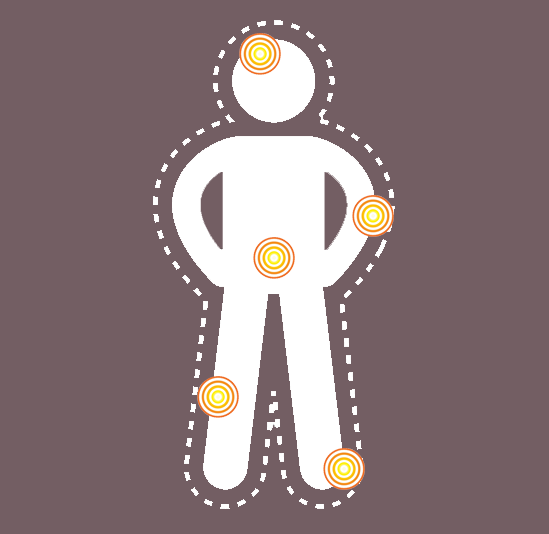Why do I have Lupus?
It is thought that lupus is caused by an as-yet-unidentified virus. This produces inflammation of the skin, blood vessels, joints and other tissues.
Hereditary and sex hormones are two other possible factors in the development of this illness.
At least 90 percent of those who develop lupus are women. Women of Asian background appear at greater risk. Lupus usually develops between the ages of fifteen and thirty-five, although it may occur at any age.
What is Lupus?
There are two types of lupus: systemic lupus erythematosus (SLE) and discoid lupus erythematosus (DLE).
SLE
SLE affects many different parts of the body.
The first symptoms resemble those of arthritis, with pain and swelling in the fingers and other joints. Other symptoms can include:
- abdominal and chest pains
- fatigue
- hair loss
- loss of appetite and poor circulation in the fingers and toes.
The lungs and the kidneys are often involved and in serious cases the brain, spleen and heart may be affected.
DSE
DSE is a less serious form of the disease that primarily affects the skin, including the characteristic “butterfly” rash that forms over the nose and cheeks.
Both types of lupus follow a pattern of periodic flare-ups alternating with periods of remission. Exposure to ultra-violet light, fatigue, pregnancy, infection, some drugs, chemicals and stress can trigger a flare-up.
What are the standard treatments for Lupus?
Conventional treatment focuses on easing symptoms with non-steroidal anti-inflammatory drugs (NSAIDS), corticosteroids and immune-suppressing drugs all of which have side effects. Anti-malarial drugs are also used to treat rashes, joint and muscle pain and fatigue.
How can Foodwise help?
Do you suffer from Lupus? Foodwise can help.
Anti-inflammatory medications, corticosteroids, antibiotics and immune suppressing drugs are not your only options.
We have all the nutritional information and dietary advice to help manage lupus naturally and help alleviate its symptoms.
Join nowHow does healthy nutrition help manage Lupus naturally?
Alternatives to conventional therapy treatments are becoming more popular due to the inability to find a cure for SLE and a growing desire for a treatment plan carrying a lower risk of adverse side effects.
It is vital that lifestyle changes, such as a healthy diet, regular exercise, rest, and stress management form the basis of any autoimmune disease treatment plan, including lupus.
Diet, lifestyle modification and supplementation should begin as soon as possible, as the earlier this approach is initiated the better the results will be. Studies suggest that certain dietary supplements can be used to alleviate possible side effects of immune-modulatory drugs and the symptoms of chronic fatigue and thus improve overall wellness. These include DHEA, essential fatty acids, vitamins A and D and antioxidants.
Since inflammation plays a key role in lupus, the dietary and lifestyle approach puts the emphasis on controlling pain and inflammation.
The nutritional approach to managing lupus includes:
- following a whole food, anti-inflammatory diet
- identifying food allergies and intolerances
- supporting the liver’s detoxification of medications
- avoiding inflammatory foods (including the nightshade family)
- avoiding environmental pollutants
- maintaining strong bones and muscles
- correcting nutritional deficiencies
as well as the appropriate use of natural supplements and home remedies.

